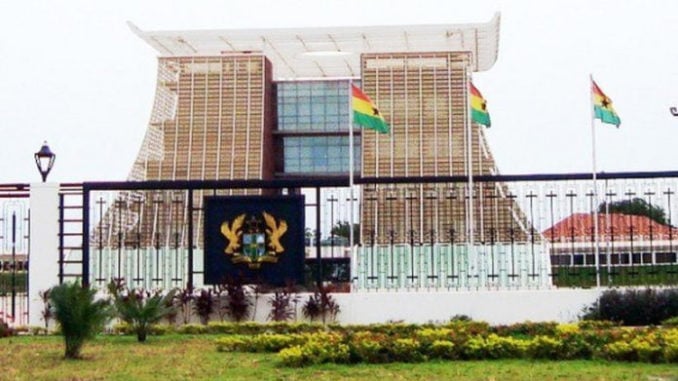LEADERSHIP IN TRANSITION
When the village chief returns after a long silence, he does not beat empty drums—he comes with thunder, rain, and a harvest for all.” — Akan Proverb
ACCRA — The Return of the Accountable One
In the vibrant heart of West Africa—where the kente cloth tells stories more vivid than any royal memoir, and where the sunrise over the Black Star Square whispers ancient prophecies of liberty—something rather poetic is unfolding. Ghana’s former President, John Dramani Mahama, has returned not with the pageantry of a political comeback, but with the solemn stride of a leader on a sacred mission.
Yes, the man who once exited the Jubilee House with quiet dignity is back. Not with revenge in his eyes, nor populism in his pockets, but with what he calls a “120-Day Social Contract.” Think of it not as a political agenda, but as a surgical operation on the conscience of a nation—performed with the precision of a surgeon and the faith of a village healer.
The joke in Accra these days? “Mahama’s back—not to talk, but to audit.” And the people are listening.
A Manifesto Reborn with Purpose
This isn’t the usual recycled political gospel dusted off every four years. The 25-point Social Contract is the first of its kind in African presidential politics: a self-imposed blueprint of promises with a 120-day deadline.
From banning political appointees from buying state assets, to reopening the Ahmed Suale murder case, to abolishing controversial taxes like the E-Levy and betting levies—Mahama isn’t just promising change; he’s pledging reform that bites. It’s transparency with teeth.
In a political culture where manifestos often arrive bloated with ambition but light on deliverables, Mahama has introduced governance by stopwatch.
A New Beat of Leadership
To the untrained eye, Mahama’s calm demeanor might mask the fire beneath. But those who know him—village chiefs, journalists, and even skeptical youth—sense something deeper.
In the cocoa towns of the Ashanti, they whisper, “This Mahama, he dey come like ancestral spirit.” In the urban trotro debates, one conductor said it best:
“Now, de man say no more chop-chop. So we go watch.”
This accountability crusade is not Mahama’s attempt to cleanse his legacy—it’s his attempt to heal Ghana’s broken democratic faith. And the vehicle for this healing? A governance rhythm that fuses African values with global accountability norms.
A Governance Task Force Fit for a G20 Nation
To monitor this self-imposed 120-day contract, Mahama appointed a 19-member implementation council chaired by Dr. Valerie Sawyerr. They are not campaign strategists; they are technocrats, scholars, and policy specialists tasked with delivering real-time, public-facing evaluations of the president’s early performance.
Think of it as Ghana’s version of a White House Office of Policy Delivery, but with more cultural grounding—and perhaps, less red tape.
MahamaCares Unveiled: Jobs, Justice, and the Soul of Governance
Under the Adwumawura (Master of Jobs) initiative, Mahama intends to address youth unemployment not with slogans, but enterprise incubation zones, digital economy clusters, and green manufacturing labs. Meanwhile, his directive to revive the Ahmed Suale investigation—long thought buried under political dust—is a bold signal that justice will no longer sleep while power feasts.
His commitment to social equity isn’t performative—it’s personal. From free tertiary education for persons with disabilities to menstrual equity for adolescent girls, his initiatives are shaping a presidency with a heartbeat.
Environmental Redemption and Fiscal Maturity
Mahama’s proposed ban on mining in forest reserves, a Tree-for-Life planting campaign, and restoration of water bodies ravaged by galamsey (illegal mining) are more than policies—they are penitential acts. A country stained by environmental greed must now be washed in the sacred rivers of restoration.
On the fiscal front, Mahama’s proposed homegrown economic plan distances itself from over-reliance on IMF prescriptions. The former communicator-turned-economist now speaks the language of public sector discipline, strategic austerity, and smart taxation, tailored to Ghana’s own economic pulse.
Africa’s Accountability Moment
In a world where many democracies are gasping for breath—from Washington’s gridlock to Westminster’s revolving doors—Mahama’s Ghana stands as an unexpected lighthouse.
This new brand of African leadership—visionary, accountable, culturally anchored—is quietly rebranding the narrative of governance on the continent. Mahama isn’t just campaigning for power; he’s rebranding the soul of governance itself.
The New Drumbeat of Africa
Africa doesn’t need perfect men. It needs accountable ones. Men and women who understand that power is not a throne, but a burden carried in trust. John Mahama, in his second act, is showing the world that you can return without repeating, lead without looting, and inspire without imposing.
In the folklore of Africa, the elder who returns from the forest with the healing leaf becomes the village’s hope. Mahama is that elder now.
And if Ghana’s democracy survives the cynicism of broken systems and broken promises, history may remember this moment not as a comeback—but as a correction.
#bismarckinspires
“Leadership is not the crown on your head, but the footprints in the conscience of your people. John Mahama’s return is not about power—it is about purpose. He is not here to repeat history, but to rewrite it with transparency, truth, and the sacred ink of accountability.”
Resetting Ghana is Possible
If Ghana is to rise again, it must do so not on concrete alone, but on conviction. President Mahama’s 120-Day Plan has offered the nation a mirror—and a machete. A mirror to see where we failed, and a machete to clear the path forward.
Let it be said, years from now, that in the land of Kwaku Ananse and Yaa Asantewaa, a man once returned to presidency not with pomp, but with purpose. And with that purpose, he reset the soul of a nation.
References
Mahama’s First 120 Days Social Contract
NDC 2024 Manifesto – Resetting Ghana
GhanaWeb Analysis of 120-Day Social Contract
Fact-Checking All 25 Promises in President John Mahama’s 120-Day Social Contract


